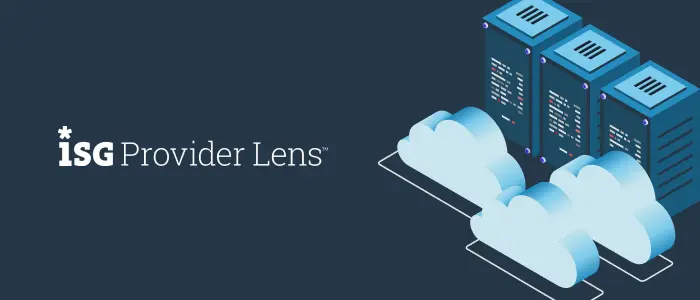
Hybrid cloud is a cloud computing environment that uses a mix of private cloud and public cloud services. Incorporating management, orchestration, and automation across multiple environments, a hybrid cloud connects one or more public cloud services as well as on-premises hypervisors and data centers into a single shared control plane.
Hybrid clouds deliver undeniable value to organizations that have a heterogeneous set of mixed workloads, offer a range of IT services to stakeholders, operate in highly regulated industries, or face data residency concerns.
Right now, companies are in different phases of hybrid cloud computing maturity. Some companies are still early in exploration. Others are on their fourth or fifth iteration of executing on strategy and deploying the optimal hybrid cloud solution.
Where are you with your hybrid cloud strategy?
Determining your hybrid cloud strategy involves defining which data and applications should reside on which public cloud infrastructure and which should reside on private cloud infrastructure. Wherever you sit in the hybrid cloud adoption curve, choosing the right hybrid cloud strategy can multiply the advantages of every type of cloud.
Factors driving the move to hybrid cloud
Most enterprises undergoing cloud and digital transformation projects eventually find themselves in a situation where you need to manage both private and public cloud resources. That’s a direct outcome of there being just too many applications that are not ideally suited to move to the public cloud. (Actually, many of the companies who tried earlier on to go 100% public cloud are starting to think about cloud repatriation.)
Public cloud solutions are known for easy scalability ‘ whether that means bringing on more resources to meet growing demand, or reducing resources in times of reduced demand. On the other hand, private clouds are traditionally thought to be more secure and appropriate for regulated industries, with your data and apps locked safely behind your company firewalls and isolated from other organizations’ resources. Private clouds are generally more flexible, offering improved control and customization to meet unique business needs with the potential for lower total cost of ownership (TCO). This all clearly sets the stage for the increasing adoption of hybrid cloud.
Reaping the benefits of hybrid cloud
The best hybrid cloud solution can provide a number of distinct advantages, but most of these relate back to a single, overarching benefit: your organization’s ability to achieve speed and agility for 100% of your workloads, no matter where they live.
The hybrid cloud approach expands available options for aligning specific use cases with the right computing environments. Along these same lines, hybrid solutions make it possible to scale computational power to meet business demand on a daily basis. When resource needs mount ‘ perhaps to match growing demand following a new product launch or to coincide with your company’s busiest season ‘ the best hybrid cloud architecture can elastically scale or re-platform workloads into the public cloud. In terms of investment, this approach offers a clear improvement versus overpaying for ongoing access to resources in the public cloud, only to have them go unused during times of low need.
Other advantages include faster app provisioning, flexible resource utilization with a reduced need for underutilized on-premises infrastructure, and improved business continuity from backing up business-critical data from private cloud to public cloud options. Hybrid cloud solutions can also offer improved security and risk management, by giving you crucial control over where data is housed, as well as what technical security measures to include.
Determining which hybrid cloud strategy is best for you
As you set ‘ or reset ‘ your hybrid cloud strategy, consider these three approaches.
Speaking of unified hybrid cloud management. . .
Hybrid cloud can give you the best of all cloud worlds by bridging the gap between public and private clouds. To be successful and best meet your overarching business goals, the direction you take for managing hybrid cloud is a critical component of your overall strategy.
Morpheus Data offers a 100% agnostic cloud management platform, designed to bring together hybrid cloud management needs including governance, reporting, optimization, and cost control ‘ all centered around powerful self-service provisioning into any cloud.
The Morpheus hybrid cloud application orchestration platform lets you easily build, manage, and govern hybrid clouds, providing a common approach to provisioning, governance, policy management, and cost control. Built to bring together existing tools and to standardize processes across multiple clouds into a single interface, Morpheus abstracts the underlying cloud accounts, allowing even non-experts to get the most out of their hybrid cloud solution. What’s more, our unified cloud management platform can help you tackle common cloud challenges around cost and scalability.
For complete hybrid cloud lifecycle management, Morpheus is here to help you manage your cloud, your way. But don’t just take my word for it. Check out Gartner’s 2022 market guide for cloud management tooling, where Morpheus has been a leader for multiple years.
To see how we best support your cloud hybrid strategy, request a Morpheus demo today